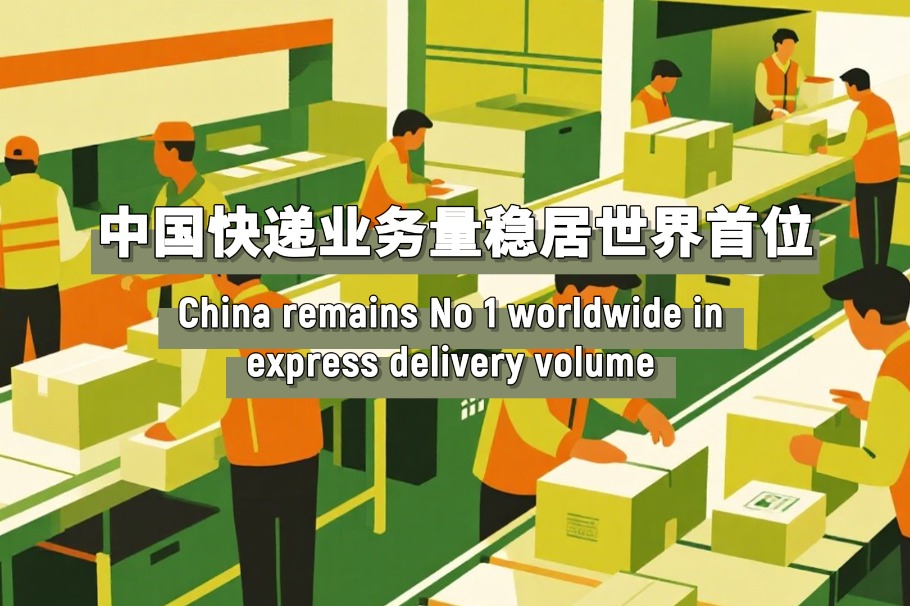Citi China advances with the times to better serve clients' needs


During her more than two decades of service, Nancy Zhang, head of corporate banking and executive vice-president of Citi China, has seen tremendous business opportunities brought to foreign banks by the continued reform and opening-up in China.
When she joined Citi in the early 1990s, the bank had set up branches in Shenzhen, Shanghai and Beijing. At that time, Citi China was limited to only a few types of business due to license restrictions.
The department of financial institutions she worked for was basically focused on providing Chinese banks with a US dollar clearing service and settlement network for international trade. The other main type of business of the bank was to satisfy the investment demand and banking service needs of multinational corporations that entered China.
As the country opened up on the scope of business for foreign banks, Citi China's areas of business have gradually expanded over the past few decades from foreign currency-denominated business to renminbi business, and from large corporates to small-and medium-sized enterprises and consumer banking. In 2007, the bank was one of the first to become a locally incorporated bank with comprehensive functions.
Meanwhile, Zhang and her colleagues saw a growing number of Chinese companies going global as China kept deepening its reform and opening-up. The corporate demands evolved from domestic borrowing to international financing through bond issuance, syndicated loans, initial public offerings, and mergers and acquisitions, and from settlement of import and export transactions to setting up plants abroad and using local services.
"Chinese companies are growing fast thanks to the country's reform and opening-up, which has led to increasingly rich and diversified corporate financial demands. Foreign banks can play a bigger role during the process," she said.
In 2004, Citi China established a commercial banking division that is dedicated to serving small-and medium-sized enterprises. Previously, Chinese companies had to apply for foreign debt quotas at the State Administration of Foreign Exchange to obtain loans from foreign banks, and the quotas were normally granted to large companies, said Zhang.
It was not until China removed such quotas as part of the efforts to open up its capital markets and allowed foreign banks to enter local currency business, did Citi expand its client base in the country to SMEs.
In those days, banks usually required small businesses to use land or factory buildings as collateral for loans, although many SMEs lacked such types of fixed assets. Citi China broke the convention by offering loans to qualified SMEs based on their cash flow conditions, without fixed asset collateral.
"We have been doing commercial banking in many markets for dozens of years, and we know where risks may occur. Learning from our experiences in other markets, we can apply our best practices to China for the benefit of local SMEs," said Zhang who joined the commercial banking division in 2006.
When performing due diligence, the bank looked at the inventory of a small business, examined its upstream and downstream supply chain, and checked whether its owner was devoted to the business or not.
"A number of SMEs in southern China were vibrant but they were constrained by a shortage of funds. The loans we gave them really helped, allowing them to accept more orders. We could see that the small business owners appreciated us from the bottom of their hearts. For me, it was an unforgettable experience to participate in the growth of Chinese enterprises and contribute my own efforts," she said.
From 2006 to the present, more than 100 SMEs that Citi China has served listed on stock exchanges. Its commercial banking team has grown more than fourfold in the same period.
As China pushes ahead with the opening-up of its financial sector, communications between foreign banks and financial regulators have become increasingly smooth.
"Every time before launching an opening-up policy, the regulators will solicit opinions from foreign bank representatives. We can make suggestions and share our overseas practice freely with the regulators, who are holding an increasingly open attitude toward foreign banks. This kind of open and direct communication benefits both of us," said Zhang.
Looking ahead, she said she hopes that the bank will be able to take advantage of the opportunities offered by China's further opening-up, obtaining new licenses to better serve clients' needs and contribute to China's financial market, such as the custodian bank and Type A underwriting license that allows it to act as a lead underwriter for corporate debt issued by nonfinancial institutions.




































